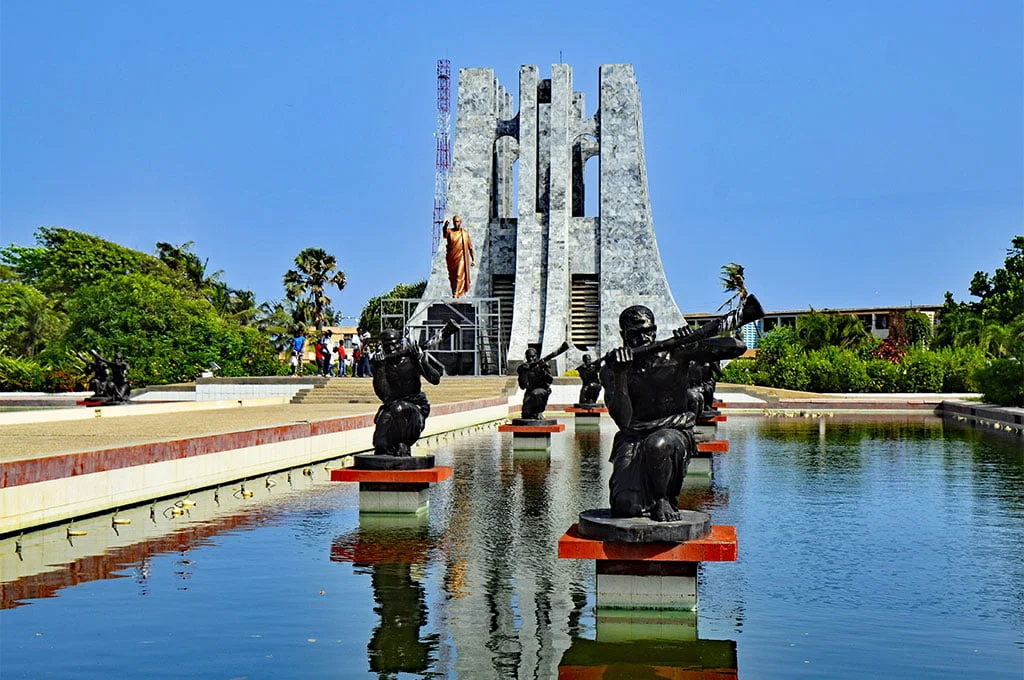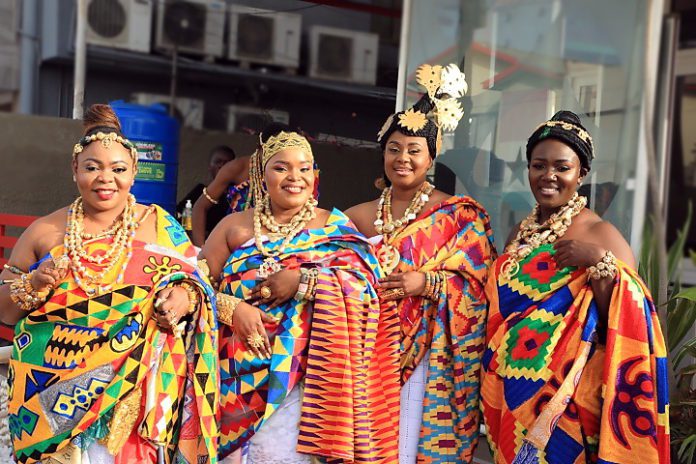Ghana, often referred to as the “Gateway to Africa,” boasts a vibrant and diverse cultural heritage that is deeply rooted in its history and traditions. From the bustling markets of Accra to the serene landscapes of the Volta Region, Ghana’s cultural tapestry is as rich and varied as its people.
Historical Significance
Ghana’s history is a mosaic of ancient kingdoms, colonial influences, and a strong spirit of independence. The Ashanti Empire, known for its wealth and military prowess, played a significant role in shaping the nation’s history. The Cape Coast Castle and Elmina Castle stand as poignant reminders of the transatlantic slave trade, offering a somber reflection on the past.

Festivals and Celebrations
Ghanaian culture is brought to life through its numerous festivals, each celebrating different aspects of life and history. The Homowo Festival of the Ga people marks the end of a long famine with joyous feasting and dancing. The Aboakyer Festival of the Effutu people involves a thrilling deer hunt, symbolizing bravery and tradition. These festivals are not just celebrations but also a means of preserving and passing down cultural values.
Music and Dance
Music and dance are integral to Ghanaian culture, with each ethnic group having its unique styles and rhythms. Highlife music, which blends traditional African sounds with Western influences, is a popular genre that has gained international recognition. Traditional dances like the Adowa and Kpanlogo are performed at various ceremonies and celebrations, showcasing the rich cultural heritage of the people.

Art and Craft
Ghanaian art is renowned for its creativity and symbolism. The Kente cloth, with its intricate patterns and vibrant colors, is a symbol of African pride and identity. Adinkra symbols, each with its unique meaning, are used in textiles, pottery, and architecture. These artistic expressions are not only beautiful but also convey deep cultural messages.
Cuisine
Ghanaian cuisine is a delightful blend of flavors and ingredients, reflecting the country’s agricultural abundance. Staples like fufu, banku, and kenkey are often served with a variety of soups and stews made from vegetables, fish, and meat. The use of spices and herbs adds a distinctive taste to Ghanaian dishes, making them a culinary adventure.
Conclusion
Exploring Ghanaian heritage is a journey through time, offering insights into the resilience, creativity, and spirit of its people. Whether through its history, festivals, music, art, or cuisine, Ghana’s rich cultural tapestry is a testament to its enduring legacy and vibrant future.




